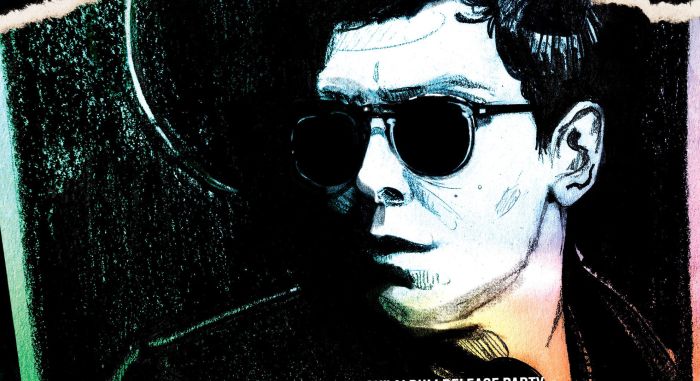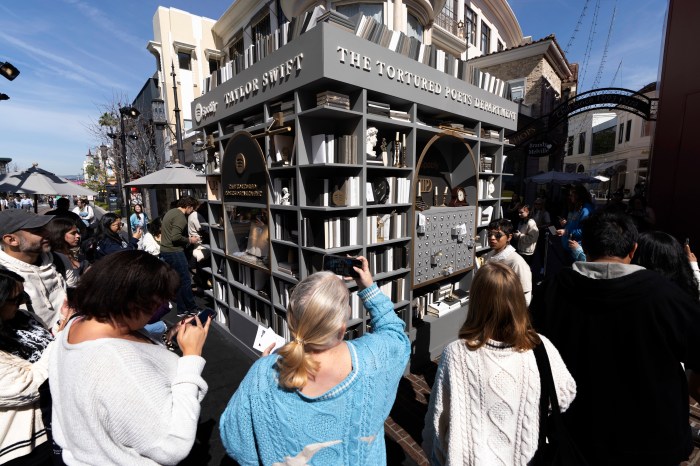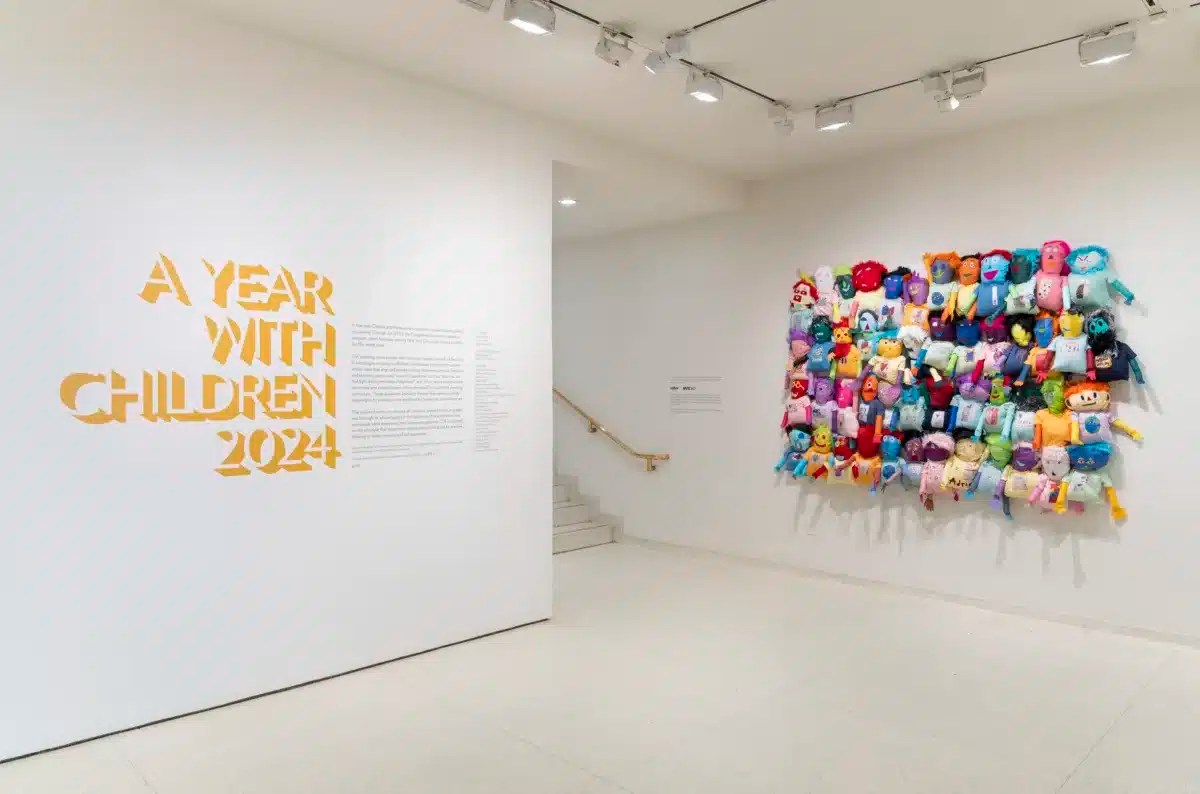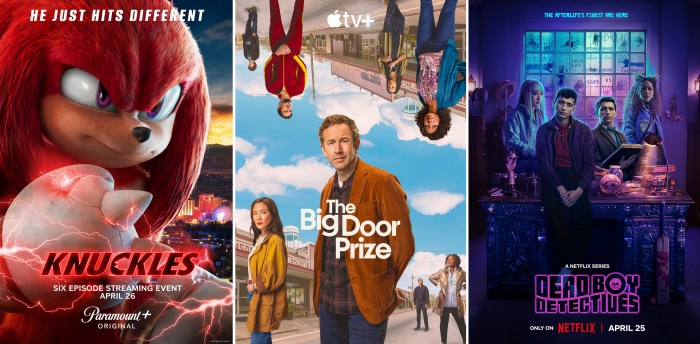On the surface, Esther and Benji (played by real-life stand-up comedians Esther Povitsky and Benji Aflalo) on “Alone Together” may seem like the quintessential aimless, neurotic millennials often senselessly accused by mainstream media of such things as having an avocado toast addiction that precludes them from ever being able to buy a house.
But for the actors — who are also co-creators and writers on the show — the hilarious Los Angeles-set Freeform sitcom, which follows both friends in their 20s and struggling to navigate their insecurities in a superficial society, represents a section of millennial America often sidelined in popular culture. In doing so, Povitsky and Aflalo are also helping validate their own experiences and relate to an underserved audience — using unbridled comedy rooted in truth.
Povitsky and Aflalo recently sat down with amNewYork to talk about bringing their real-life experiences to screen, the importance of millennial characters who don’t always have it together and avoiding classic TV tropes.
One of the greatest things about “Alone Together” is that it’s almost an escape from reality — mostly because Esther and Benji don’t exactly seem rooted in a dire sense of reality we recognize from other series. They’re often on the outside of the real world looking in. Do you as actors also feel a sense of escapism playing these roles?
Benji Aflalo: I know I definitely do, a lot. It’s been super fun especially in the second season where I try to go goth and there’s an episode where I go ’90s rocker. I’ve never really been someone who even dresses up on Halloween. I hadn’t really dressed up as anything before, so when I was doing it this year, it was so fun. Super fun. So, I do definitely feel a sense of escapism. But it’s kind of this fun opportunity that we have because we get to write the show, so we get to pick fun, silly stuff that sounds fun to do. And I know Esther dresses up and does all sorts of stuff as well.
Esther Povitsky: I feel the opposite. Like, I’m not really escaping. I’m more like diving deeper into who I am. I feel like this show has really been an opportunity to ask myself, “How do I really feel?” “What do I really want?” “What is really happening for me?” So, I feel like I get to do this deep dive into figuring out all those things and answering all those questions. So, an escape from real life but also digging deeper into who I really am.
Like a self-reflection?
EP: Yes, exactly.
In that sense, is it cathartic for you to play the role? Does it make you feel more accepting of who you really are?
EP: Yeah, I definitely would say that. It’s also cathartic to see everyone’s reactions to the show because it does make me feel at peace with who I am and my references, the things I say, and my sense of humor, because I think there’s so many people out there who relate to it and connect with it. Because for a minute, I thought I was going to say all these deep-cut Britney Spears references and whatever lyric I felt [expressed] the insecure feelings I had, and no one would respond to it. So it’s fun to see people relate to it. It makes me feel a little better about it all.
Your show also does a good job at skirting TV tropes. Particularly, it hasn’t fallen prey to the classic “Will they/Won’t they?” storyline when it comes to Esther and Benji’s friendship. Do you ever feel pressure to create a romance element?
BA: I think it’s always been in our head that that’s something that people always wanted us to do, but we intentionally wanted the story we tell to be rooted in friendship and not some sort of romantic thing. So even if it may sometimes seem that way, that’s not what we’re in it for.
EP: I feel like that would be something we could have chosen to do, and maybe it would have added an element to the show. But ultimately, we felt like that would have been following that classic TV format. We felt like what we had was hopefully a strong enough story and a strong enough dynamic and relationship that we didn’t need to rely on something like that, something like a traditional TV trope.
The show also captures a sense of millennial listlessness, where both Esther and Benji seem to find different projects for themselves, new jobs every episode that are constantly evolving. Is that more for the sake of comedy of are you making a specific statement on millennial culture?
BA: I think for me it’s mostly the TV aspect where you want to create stories and that’s just what characters do. But I think there is something true to that. Nowadays everyone has 10 different professions whereas back in the day it was definitely not like that. Even though my character doesn’t really portray someone who’s exactly in the struggle, millennials are struggling out there and there are so many millennials below the poverty line. Economically, millennials have really gotten left behind. So, I think most likely it is part of a millennial lifestyle where they are sort of looking to do something to get on their hustle. Everyone’s got to be on their hustle now.
EP: Yeah, I think my character works; we just don’t see it. She kind of does it in her own way. Because when I started out in comedy I was able to do all these crazy things with Benji, but I also maintained at any given time 3-4 jobs. I was a baby sitter, I worked at a gym, I worked at a juice shop, I was an assistant. So, I always had to hustle with all my different part-time jobs. That was ten years ago, but if it were today it would be, like, Uber driver, Postmates, baby sitter, and stuff like that. In my mind, this character does work. We’re just not seeing it as much. I also waitressed for a short amount of time. So yeah, obviously I don’t come from money or privilege, so my character is working. We’re just not diving into it.
BA: In our 20s, when you’re trying to be a stand-up comic, you just have a lot of downtime during the day, weird schedules. And it’s hard to keep a regular job, so any young person — even if you’re trying to be a musician (for us, it was comedy) — you just end up doing obscure things to get by and pass the time. You have nothing else to do. You’re just waiting for that night to do an open mic or something.
You have a couple of awesome guest stars this season like Fran Drescher and Carmen Electra. Can you tell us anything about the characters they’re playing?
EP: Fran Drescher plays my mom and we based her off my real mom. She comes to town and we learn that my mom has kind of babied me my whole life and she’s ready to pull the cord on that. She’s seen one too many hissy fits and one too many fits of bad behavior, so she’s really trying to change her ways with me. She’s really funny, such a great actress and so much fun to work with.
BA: I got to work with Carmen Elektra who was really awesome, and a dream come true. We sort of have a romantic fling and it’s really funny.
“Alone Together” also reflects a social awkwardness that many people can relate to, which has become more represented in pop culture today. Do you think that social awkwardness has become cool now as it is more accepted in pop culture? And is that something you’re reflecting on the show?
EP: I see what you’re saying, and I think social awkwardness has become trendier. I don’t think that’s something we’re aiming for. We’re just being ourselves. I see a lot of feedback online from viewers calling us awkward and stuff. But that’s not really something we’re working toward, not intentionally. But I definitely relate to it and I think you’re totally right about that being a trend right now.
BA: Yeah, awkward gets thrown around a lot.
Part of it is because Esther and Benji don’t always say or do the right things and they even call each other out about it. They’re very self-deprecating and often talk about not fitting in, which is something so many people can relate to — the fact that they’re imperfect.
EP: For sure. Not perfect characters are really important. I think some shows put out their lead character who seems so flawed but ultimately has the high-powered job and the hot guy who’s always lusting after her. There are all these things we see on TV and we feel like we’re less than because we don’t have those things, and everyone should have those things. We make a point to not paint that picture, to keep it real and keep it focused on who we are. I think that’s why I prefer shows that are created by writer/performers because you know you’re really getting a real person up there much more than other shows that aren’t like that.
On TV: ‘Alone Together’ airs on Wednesdays at 8 & 8:30 p.m. on Freeform.

















